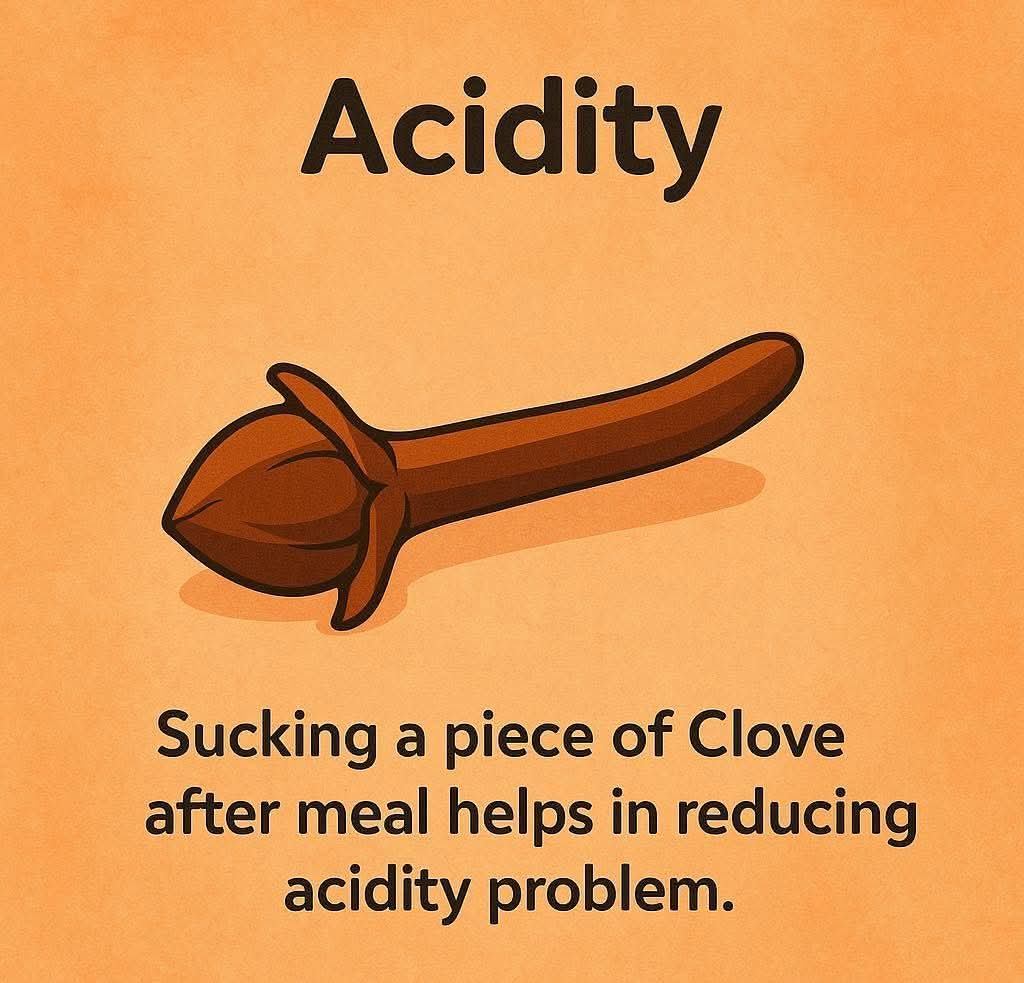
Natural Relief for Acidity: Can a Simple Clove Be the Answer?
We’ve all experienced it—that uncomfortable burning sensation in the chest and throat after a heavy or spicy meal. Acid reflux, commonly known as acidity or heartburn, occurs when stomach acid flows back up into the esophagus. While over-the-counter medications are readily available, many people seek natural, quick-fix solutions. One such ancient and popular remedy is as simple as a clove from your kitchen spice rack.
The Simple Tip: Suck on a Clove
As the note suggests, sucking on a piece of clove after a meal can be an effective way to reduce acidity. It’s a traditional practice in many cultures, particularly in India, where it is often offered at the end of a rich meal.
But how does this tiny, aromatic spice bud work its magic?
Why Does Clove Help with Acidity?
Cloves (Syzygium aromaticum) are not just culinary flavor enhancers; they are packed with bioactive compounds that contribute to their therapeutic effects. Here’s the science behind the remedy:
- Carminative Properties: Cloves are a well-known carminative, meaning they help prevent the formation of gas in the gastrointestinal tract. By reducing gas and bloating, they alleviate the pressure that can force stomach acid upward.
- Stimulates Digestion: The pungent taste of clove stimulates saliva production, which is the first crucial step in the digestive process. Increased saliva helps neutralize stomach acid and break down food more efficiently.
- Antiseptic and Anti-inflammatory Effects: The key bioactive compound in clove is eugenol. Eugenol gives clove its distinctive aroma and possesses strong anti-inflammatory and mild anesthetic properties. This can help soothe the irritated lining of the esophagus and stomach.
- Improves Peristalsis: Cloves can help strengthen the lower esophageal sphincter (the valve that keeps stomach acid down) and improve the wave-like contractions (peristalsis) of the gut, ensuring food moves in the right direction.
How to Use Clove for Acidity
Simply follow the advice on the card:
- After finishing your meal, take a single whole clove.
- Place it in your mouth and suck on it gently. Don’t bite or chew it immediately, as the flavor can be very strong.
- Let it slowly release its oils and compounds. You can eventually chew it lightly once you’re accustomed to the taste.
- The lingering effect in your mouth will also help freshen your breath naturally.
Other Natural Tips to Manage Acidity
While clove is a great post-meal trick, managing acidity is often about a holistic approach. Consider these additional tips:
· Eat Smaller, More Frequent Meals: Large meals put pressure on your stomach.
· Stay Upright After Eating: Avoid lying down for at least 2-3 hours after a meal.
· Identify Trigger Foods: Common culprits include spicy, oily, and acidic foods, as well as caffeine and chocolate.
· Stay Hydrated: Drink plenty of water throughout the day, but avoid large amounts during meals.
While generally safe for culinary use, cloves are potent. Consuming large amounts of clove oil can be harmful. For sucking on a single clove after a meal, the risk is minimal. However, if you have a known allergy or are pregnant, it’s always best to consult your doctor before trying new remedies.
Sucking on a clove after a meal is a time-tested, natural, and convenient remedy that can provide quick relief from acidity for many people. By harnessing the power of its digestive and anti-inflammatory properties, this simple spice can be a powerful ally in your wellness toolkit. The next time you feel the burn after a meal, you might just find relief in your own kitchen.

Leave a Reply